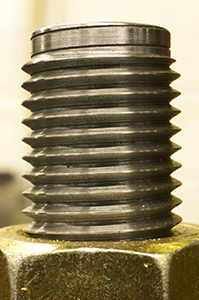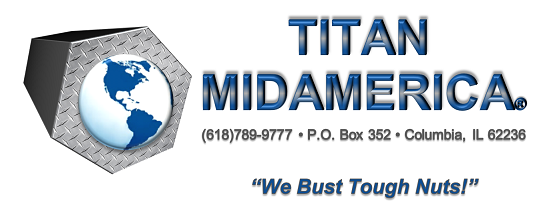
By Bill Washington
When answering this question, it is important to understand what happens when we tighten a bolt. The bolt acts as a heavy spring that clamps two or more pieces together. When we turn a nut we stretch the bolt. Stretch or elongation provides clamping force. Not enough clamping force allows the nut to vibrate loose causing leaks. Too much clamping force causes gasket damage, bolt galling, flange damage and even bolt breakage.
Clamping force increases on a straight line until yield is reached or exceeded. The yield strength or yield point of a material is the stress at which a material begins to deform plastically. Prior to the yield point the material will deform elastically and will return to its original shape when the applied stress is removed. Once the yield point is passed, deformation will be permanent and non-reversible. Knowledge of the yield point is vital when tightening a fastener since it generally represents an upper limit to the load that can be applied.
Accurate fastener installation is equal in importance to the selection of fastener grade and type. A properly tightened assembly is one that applies a preload (clamping force) to the bolt that is equal to or greater than the maximum operating load that will be experienced in service. When proper preload is applied and maintained; the bolt cannot fail from fatigue because it will experience no change of stress. Any mechanic can cause any fastener to fail by simply over tightening or under tightening it.
The short answer to the question “How tight is tight?” is that it depends on the application more than the fastener. It is always best to consult with the manufacturer of the product or the engineer responsible for an installation. It is also best practice to follow proven bolting procedures and use a calibrated torque wrench when tightening bolts to a specified torque value.
Still confused or have another question related to bolt installation or removal? You can always contact one of our highly trained bolting technology specialists to discuss your application. Call 281-449-6466 (worldwide), 1-800-231-1075 (toll free US & Canada), or email us at sales@fastorq.com. We’re happy to help you with your specific project!
ShareJAN
2013
